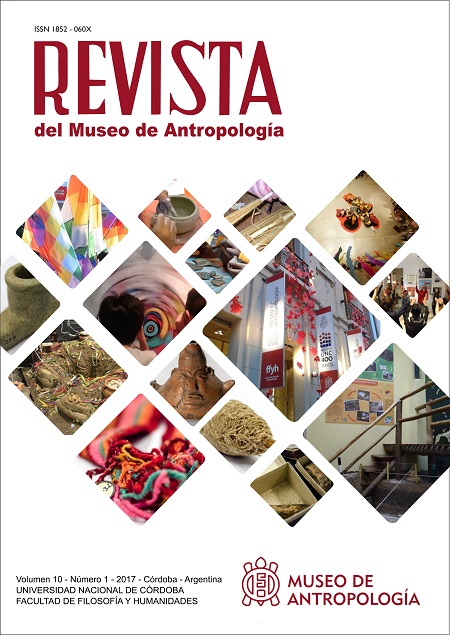“The attempt to see”. Interview with Marcio Goldman
DOI:
https://doi.org/10.31048/1852.4826.v10.n1.16757Keywords:
ethnographic theory, affectation, training of anthropologistsAbstract
Marcio Goldman, PhD in Anthropology from the Federal University of Rio de Janeiro and professor at the National Museum of the UFRJ, has researched for more than twenty years in the area of Ilhéus, state of Bahia, about the religions of the African matrix in Brazil and the conception of politics from those spaces. Among his numerous publications are books such as Razão e diferença: afetividade, racionalidade e relativismo no pensamento de Lévy-Bruhl (1994); Antropologia, voto e representação política (1996); Alguma antropologia (1999); Como Funciona a Democracia: Uma Teoria Etnográfica Da Política (2006); Mais alguma antropologia: Ensaios de geografia do pensamento antropológico (2016).
One of the most notable characteristics of his production is the care to "symmetrize" his own and "native" knowledge and practices. This activity requires on the part of the ethnographer a constant and always unfinished effort to look from the point of view of the other, to try to think of others without imposing the a priori of our own frameworks of intelligibility of the world. On this epistemological basis, Marcio takes up again the Malinowskian idea of "ethnographic theory" as a key notion to understand the specificity of anthropological knowledge, its particular ubiquity and capacity to generate a movement towards new ways of knowing.
His attention to the ways in which people compartmentalize their world, define the beings that exist in it, the forms of relation with them, their ontological status, has to do with a series of themes that we have been problematizing in the Nucleus Nature-Culture, a space of formation and investigation that is developed in the Institute of Anthropology of Cordoba. From this space was generated the possibility of sharing with him in July last year a workshop called "The affects of the field in Anthropology", in which we take as the axis of work the concept of "affect" coined by Jeanne Favret-Saada (1990) and retaken by Marcio in his works. In the workshop, several topics related to field experience and anthropological work were developed, some of which are taken up here.
This interview was originally conducted by and intended for undergraduate students in anthropology. The questions, formulated from the desire to train us as anthropologists, cover a wide range of topics: the training of anthropologists, fieldwork, the subjective transformations we face, the ideas and key readings that mark a researcher. With rich, exhaustive reflections, of great depth and openness, Marcio resumes from these questions some points of his own trajectory, proposals and positions on anthropological knowledge.
Downloads
References
Bateson, G. (1936) Naven. Stanford University Press. En español: (1990) Naven. Un ceremonial iatmul. Madrid. Júcar.
Clastres, P. (1972) Chronique des indiens Guayaki. París. Terre Humaine. En español: Crónicas de los indios Guayaquis. Barcelona. Alta Fulla. 1986.
Evans-Pritchard, E. (1937) Witchcraft, Oracles and Magic among the Azande. Oxford. Clarendon Press.
Evans-Pritchard, E. (1956) Nuer religion. Londres. Oxford University Press.
Favret-Saada, J. (1977) Les mots, la mort, les sorts. Paris. Gallimard.
Favret-Saada, J. y Contreras, J. (1981) Corps pour corps. Enquête sur la sorcellerie dans le Bocage. Paris. Gallimard.
Goldman, M. (1994) Razão e diferença: afetividade, racionalidade e relativismo no pensamento de LévyBruhl. Rio de Janeiro. Universidad Federal de Río de Janeiro.
Goldman, M. (1999). Alguma antropologia. Rio de Janeiro. Relume Dumará.
Goldman, M. (2006). Como funciona a democracia: uma teoria etnográfica da política. Rio de Janeiro. Ed. 7 Letras.
Goldman, M. (2016). Mais alguma antropologia: Ensaios de geografia do pensamento antropológico. Rio de Janeiro. Ponteio.
Goldman y Palmeira (1996). Antropologia, voto e representação política. Rio de Janeiro. Contracapa.
Herzfeld, M. (1986). The Poetics of Manhood: Contest and Identity in a Cretan Mountain Village. Princeton University Press.
Lienhardt, G. (1961). Divinity and Experience: The Religion of the Dinka. Londres. Oxford University Press. En español: (1985) Divinidad y experiencia. La religion de los Dinkas. Madrid. Akal.
Malinowski, B. (1935). Coral Gardens and Their Magic: A Study of the Methods of Tilling the Soil and of Agricultural Rites in the Trobriand Islands. London. Routlege. En español: (1977) El cultivo de la tierra y los ritos agrícolas en las islas Trobriand. Los jardines de coral y su magia. Barcelona. Labor.
Downloads
Published
Issue
Section
License
Those authors who have publications with this Journalaccept the following terms:
a. Authors will retain their copyrights and guarantee the journal the right of first publication of their work, which will be simultaneously subject to the Creative Commons Attribution License (Licencia de reconocimiento de Creative Commons) that allows third parties to share the work as long as its author and his first publication in this journal.
b. Authors may adopt other non-exclusive licensing agreements for the distribution of the version of the published work (eg, deposit it in an institutional electronic file or publish it in a monographic volume) provided that the initial publication in this journal is indicated.
c. Authors are allowed and recommended to disseminate their work on the Internet (eg in institutional telematic archives or on their website) before and during the submission process, which can lead to interesting exchanges and increase citations of the published work. (See The Effect of Open Access - El efecto del acceso abierto)












